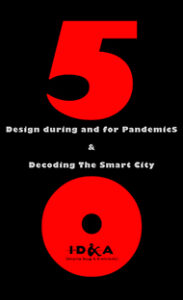(https://doi.org/10.55612/s-5002-050)


Fabian Bäumer
is a master student at the University of Siegen in business administration with a focus on management and markets. He completed his Bachelor of Arts in Social Sciences with secondary subject Economics. He is working as a student/scientific assistant at the chair of Prof. Dr. Claudia Müller since September 2018. In this context, he is active in the project ‘Cooperative Production of User Autonomy in the Context of the Aging Society’ in the Collaborative Research Center ‘Media of Cooperation’.’

Pedro Filipe Campos
is Associate Professor with Habilitation in the Computer Engineering Department of the Faculty of Exact Sciences and Engineering, University of Madeira, since May 2018. He teaches Programming Usable Interfaces, Software Processes and Metrics, Advanced Research Topics and other curricular units related with Human-Computer Interaction and Software Engineering. Pedro holds an Habilitation from the University of Aveiro (Feb. 2018), a PhD in Human-Computer Interaction from the University of Madeira (Oct. 2006), and a BSc and MSc in Informatics and Computer Engineering from the Technical University of Lisbon (2002, 2003). Pedro has published more than a hundred peer-reviewed papers in the fields of HCI, and has participated in the program committee of more than 50 international conferences, and had leading roles in the organization of more than 28 international conferences, serving as president of the program committee, associate chair, local organizer, posters chair, demos chair and others. He is currently the national delegate to the IFIP’s Human-Computer Interaction (TC13), where he is also vice-chair of the 13.6 HWID (Human Work Interaction Design) working group. He co-founded the HWID (Human Work Interaction Design) conference series held every 3 years since 2006, and published by Springer-Verlag. He is Area Editor of the EAI Transactions on Creative Technologies.

Katerina Cerna
is a HCI lecturer at the Division of Human-computer interaction, Gothenburg University. She has a longstanding interest in combining learning and participatory design, especially in enabling citizens in co-creating their own solutions and the necessary knowledge they need to develop to do so. Currently she is exploring these topics in the field of HCI, sustainability and wellbeing.

Nastaran Dadashi
is a faculty and researcher at the School of Design, George Brown College. She holds a PhD in Human Factors and a MSc in Interactive Systems Design from University of Nottingham. She aims to incorporate design thinking to explore multi-agent socio-technical control systems. Nastaran is a Chartered Ergonomist and Human Factors Specialist (CErgHF).

Nils Ehrenberg
is a doctoral researcher in design at the Aalto University School of Arts, Design and Architecture. Previously he has worked for Malmö University and Madeira Interactive Technologies Institute. His ongoing doctoral project concerns issues of justice, ethics, and power in the smart home as well as the digitalisation of public services.

Tanja Ertl
is a Research Associate and PhD Student at the Information Systems department, especially IT for the Ageing Society at the University of Siegen, Germany. Her research focuses on HCI4Margins with special focus on well-being, resilience and (mental) health, where she is looking for potentials, benefits, limitations and risks of ICT

Jessica Frawley
is a Senior Lecturer in Educational Innovation at the University of Sydney, where she also holds an honorary appointment at the Sydney School of Architecture, Design and Planning. Jessica’s research sits at the nexus of design, computing and education. She has authored and co-authored journals, books and conference proceedings in human-computer interaction and educational technology. She is a Senior Fellow of the Higher Education Academy.

Joel Fredericks
is a Lecturer in Design at The University of Sydney’s School of Architecture, Design and Planning. Joel is an urban planner, community engagement practitioner and interaction designer. His research is transdisciplinary and sits across the domains of community engagement, smart cities, participatory design, social inclusion and digital participation and immersive technologies. He has authored and co-authored many publications in journals, edited books and conference proceedings.

Marcus Foth
is Professor of Urban Informatics in the QUT Design Lab, Faculty of Creative Industries, Education and Social Justice at Queensland University of Technology, Brisbane, Australia. His current research foci include: urban media and geoprivacy; data care in smart cities; digital inclusion and participation; blockchain and food supply chains, and; sustainability and more-than-human futures. He is a Fellow of the Australian Computer Society, a Distinguished Member of the ACM, and a member of the Australian Research Council’s College of Experts.

Nazanin Houmayounfar
is the Program Coordinator and Faculty of the Interdisciplinary Design Strategy at the Institute without Boundaries, George Brown College. Her background in Philosophy, Political Science and Design Strategy has equipped her with the design tools needed to work with interdisciplinary students and faculty to propose design solutions for real world problems.

Eirene Keh
is a design strategist and researcher at George Brown College with a background in healthcare (Medical Radiation Sciences). Her research interests include user experience, participatory design, community-building, placemaking, smart cities, and healthcare.

Turkka Keinonen
is a professor of industrial design and vice dean of research at Aalto University School of Arts, Design and Architecture. Previously he has worked for Nokia Research Center and National University of Singapore. His research deals with human centred, collaborative and socially sustainable design.

Madalynne Lawrence
is a multidisciplinary, currently in a design strategy role at L’institut Idée. Her training in Psychology, and Design as well as down-time spent as a social entrepreneur guide her research interests in human-centred social planning and urban design as they relate to intersectional health outcomes.

Claudia Muller
is Assistant Professor of Socio-Informatics, specialising in “IT for the ageing society” at the University of Siegen, Germany. Her expertise is participatory design with and for older adults, vulnerable user groups and local communities. She is representative chairwoman of the commission of the Eighth Federal Government Report on Older People.

Richard Paluch
is a PhD Student at the Information Systems Department, especially IT for the Ageing Society at the University of Siegen, Germany. His research focuses on the robotization of care. Possibilities and limits of robotic systems for nursing are analyzed and standards for reasoning and assessment are developed for people in need of care.

Rosanne Sauz
is a design strategist with a background in SAP consulting, currently a product designer at a 3D printing company. Her research interests include system design and its impact on behaviour, decision-making, and quality of life in cities.

Froukje Sleeswijk Visser
is an assistant professor service design at the Faculty of Industrial Design Engineering, Delft University of Technology, in The Netherlands and an independent design researcher at ContextQueen. Froukje is a pioneer and thought leader in user insight research methods for service innovation. Her academic research focuses on developing design methodologies to realise social impact through multiple stakeholder collaboration.

Martin Martin Tomitsch
is a Professor of Interaction Design in the School of Architecture, Design and Planning, Coordinator of the Urban Interfaces Lab, and Director of Innovation (Education, Enterprise and Engagement) at the University of Sydney. He is a visiting Professor at the Beijing Central Academy of Fine Arts Visual Art Innovation Institute and a founding member of the Media Architecture Institute. His recent books include “Design Think Make Break Repeat – A Handbook of Methods” (BIS) and “Making Cities Smarter – Designing Interactive Urban Applications” (Jovis).

Jeroen van Erp
Is a professor of concept design at the Faculty of Industrial Design Engineering, Delft University of Technology, in The Netherlands and one of the founders of strategic design agency Fabrique.At Fabrique, Jeroen established the interactive media department in 1994, focusing upon developing websites for the world wide web – brand new at that time. In the past 15 years, the agency received over 200 international awards. Jeroen is partner and participates as innovation strategist and concept developer in various projects.

Wies van Nifterik
is a fulltime design researcher at Zeewaardig Service Design, focusing on social design issues. Wies graduated at the master Design for Interaction at the Faculty of Industrial Design Engineering, Delft University of Technology. Her research interest is applying design methodologies to solutions for complex human problems.

Dan Vo
